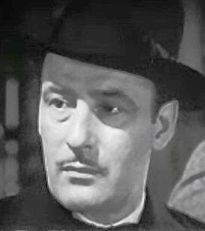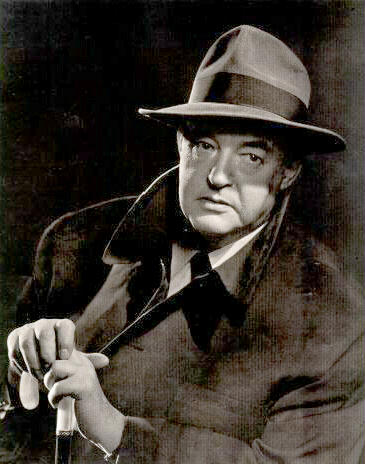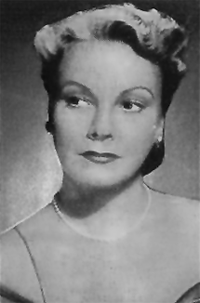Watching movies and listening to radio programs from 1942-45 and in some cases beyond, the specter of World War II is inescapable. Radio had an even greater war focus than movies because of its immediacy and timeliness. Movies could contain general messages on the war and an encouragement to buy war bonds, but radio could respond to whatever the latest war news was. Did we need to give our binoculars to the troops? Or did we need to save our kitchen fats. The radio would tell us.
Radio gives keen insights into what life was llike during this period that movies or history classes fail to capture. For example, commercials for Rinso, sell the soap as a way to preserve washing machines from wearing out as no more washing machines would be made for the duration of the war, as factories that had made washing machines were converted to war use.
Lum and Abner in their warm humorous way, explained how various new rationing programs would work and why they were in place. During the war, gasoline was rationed. However, it wasn’t rationed to conserve gasoline, but to conserve tires from wearing out as rubber was a vital war material. If people drove less, their tires would wear out less.
Gracie Allen used the Burns and Alllen program to urge women to save their cooking fats and give them to the butcher. These fats contained glycerin which could be used as a war material.
Radio was a great recruiter for all the war jobs that needed to be done. Radio urged women to join the WACs and the WAVs, and the Army nurse corps. It promoted the vital work of the Merchant Marines.
Radio was also the great promoter of American charity and giving. War Bonds and War Stamps were sold on every program to cover the various war loans. The sales pitch would sometimes be emotionally moving, appealing to the hearts of Americans wanting to ensure our soldiers returned safely. Other times, lesser motives were used. Episodes of Superman encouraged boys and girls to buy war and stamps because of the amount of stuff that goes boom that it would buy. An appealing idea for little boys, and sometimes even bigger boys.
War Stamps were placed in a book. People would purchase one with their groceries or when making another purchase. And over time, they would fill the book and then trade in the war stamps for a war bond, which would pay interest. However, people could be forgetful. Several episodes of Lum and Abner addressed a problem that had occurred with more than 100 million war stamp books being only partially filled. The government needed the money and those folks who had partly filled books were losing out on the interest.
The purchase of war stamps and war bonds was also meant to keep inflation down. During World War I, as war dollars flowed into the economy, inflation had run rampant. By getting Americans to save and keeping prices and wages down, it was hoped to avoid massive inflation which would cripple the war effort.
Americans were not only urged to buy war bonds and stamps, but to support the work of the American Red Cross and the USO. After the war, Americans were asked to continue to give, to send care packages to Europe to feed starving people, some of whom were in countries we’d just been at war with. The help for Europe was needed in other ways. Many European countries found themselves with a shortage of Soap. In the mid-40s, Swan co-sponsored a drive to send soap to Europe over the Bob Hope show.
World War II also shaped the type of villains that would appear. Superman was taking on German spies even before America joined the war although the show tried for plausible deniability by thinly camoflaguing the bad guys. Superman’s Battle against Axis spies became unambiguolus once the U.S. join the war. Even minor radio characters go into the act withamateur detective Leonidas Witherall taking on a Nazi spy. Black mareteers who sold illegal goods at inflated prices were roundly condemned on Lum and Abner. In the Summer 1944 Boston Blackie radio series with Chester Morris, Blackie also went to battle with black market meat sellers. Nick Carter dealt with a wartime con artist who cheated high school kids with a fraudulent war charity.
Radio also brought us the emotions of the time. The Mayor of the Town premiered on NBC in September of 1942 and starred Lionel Barrymore as the beloved mayor and patriarch of a small town. More like the town elders of ancient days than your usual mayor, young people came to the Mayor for advice. The Mayor (as he was never called by anything but his title) had a hard job as he encouraged young people who he had seen grow up from children to join the military, knowing that many may never return. In the first episode, the Mayor supports the decision of his best’s friend son to enlist. The son was reported killed, breaking the Mayor’s heart, and jeopardizing his friendship with Judge Williams.
The Mayor also took in a British War orphan, who had lost both of his parents in a German bombing and was traumatized by even the sound of an airplane passing over.
Lum and Abner became deadly serious when the old fellows hatched a plan to send birthday cards to Pine Ridge soldiers stationed overseas. They didn’t know the birthday of one soldier, Robert Blevins. Lum called up the Blevins place to ask, and slowly became somber as he learned the answer. When he hung up the phone, Abner asked when Robert Blevins birthday was. Choked up, Lum said, “Robert Blevins ain’t going to have any more birthdays.” The show then turned to an appeal to buy war bonds. Pine Ridge also sent other characters to the war. The meek and henpecked Mousie Gray was drafted. The MacMillan boys had been frequently mentioned on the program in the pre-Wars day and they enlished. Cedric Weehunt took up working at the defense plant.
Those actual war-time recordings we have are rare treasures. During the war, in order to preserve metal for war use, radio stations switched to using glass transcription discs, which were far more fragile.
Even after the war was over, radio was different. As the mid-1940s show, The Adventures of Frank Race proclaimed in its opening, “The war changed many things. The face of the Earth and the people on it.”
Americans had seen the ugly face of racial and ethnic hostilities, and sought to fix those blemishes in America. Americans were encouraged towards kindness and brotherhood, with brotherhood week being observed with several radio specials.
The 1948-52 Comedy, Life with Luigi featured J. Carrol Naish as an Italian Immigrant with a heart full of love for his new country and confusion with some of its ways. He attended a multi-ethnic night school class for the era’s version of English as a Second Language students. Jack Webb took on racial prejudice and bigotry in his “1 out of 7” series. Private Investigator Jeff Regan (played by Frank Graham) took on bigotry against an Italian immigrant in, “A Fire for Romano.”
Bob Hope had been one of a legion of stars who had entertained the troops during the war. However, while World War II was the end of this effort for many actors, for Hope, it was only the beginning. Hope’s radio program traveled to military hospitals. Hope himself continued to bring laughter to America’s troops, even through conflicts that Americans didn’t embrace as heartily as World War II, famously going to Vietnam to support the troops. Over the radio, Hope plugged good causes, whether they were boys clubs or the March of Dimes. World War II marked the beginning of a career of service for Hope.
It also would mark the end of life for another talented man. Big Band Musician Glenn Miller, who had a fantastic civilian career was 38 and too old to be taken in the draft. Yet, he tried to join the Navy, and was able to join the Army after much pursuasion. Miller, during his military career, used his immense talents to entertain the troops and to win the war. In December of 1944, Major Glenn Miller was flying to Paris to entertain the troops and was presumed dead at age 40, leaving a void in the music world.
Since World War II, America has had many wars, as well as many efforts that politicians have avoided referred to as wars, none have quite had the impact and uniting effect that World War II had. Perhaps, because the American people were less sold on these various adventures than they had been the war against the Axis. Americans put up with a lot of restrictions and inconveniences that were foreign to them to win the war. However, Americans were in no hurry to embrace such extreme sacrifices, and no freedom-loving people would be. Indeed, one minor theme on radio was people dreaming of what they would do when restrictions ended after the war.
To many 21st Century ears, the presence of war propoganda on the radio is silly or embarassing for what’s seen as overwrought patriotism and animus towards the Axis, with a black and white view of the world. Others complain that it interrupts the show. After all, we turn on the radio or television, or go to the movies to be entertained, not lectured about our personal investment choices or told to save our kitchen fats.
I’m of the mind that wartime radio gives us a unique insight into the times and the extreme sacrifices that were made in World War II in a battle against true evil. Radio reminds us that the victory was not won by the soldiers alone or by the statesmen, but also by countless millions working and praying for victory and the safe return of those they love.
As an American, it is a stunning thing to realize the sacrifices that were made and how these efforts led to America not only helping bring about an allied victory, but then saw America feeding the people of its defeated enemies. It was America at its finest. And perhaps for an American living in the 21st Century, radio provides a hope that within us, that heritage still survives.
If you enjoyed this post, you can have new posts about Detective stories and the golden age of radio and television delivered automatically delivered to your Kindle.





